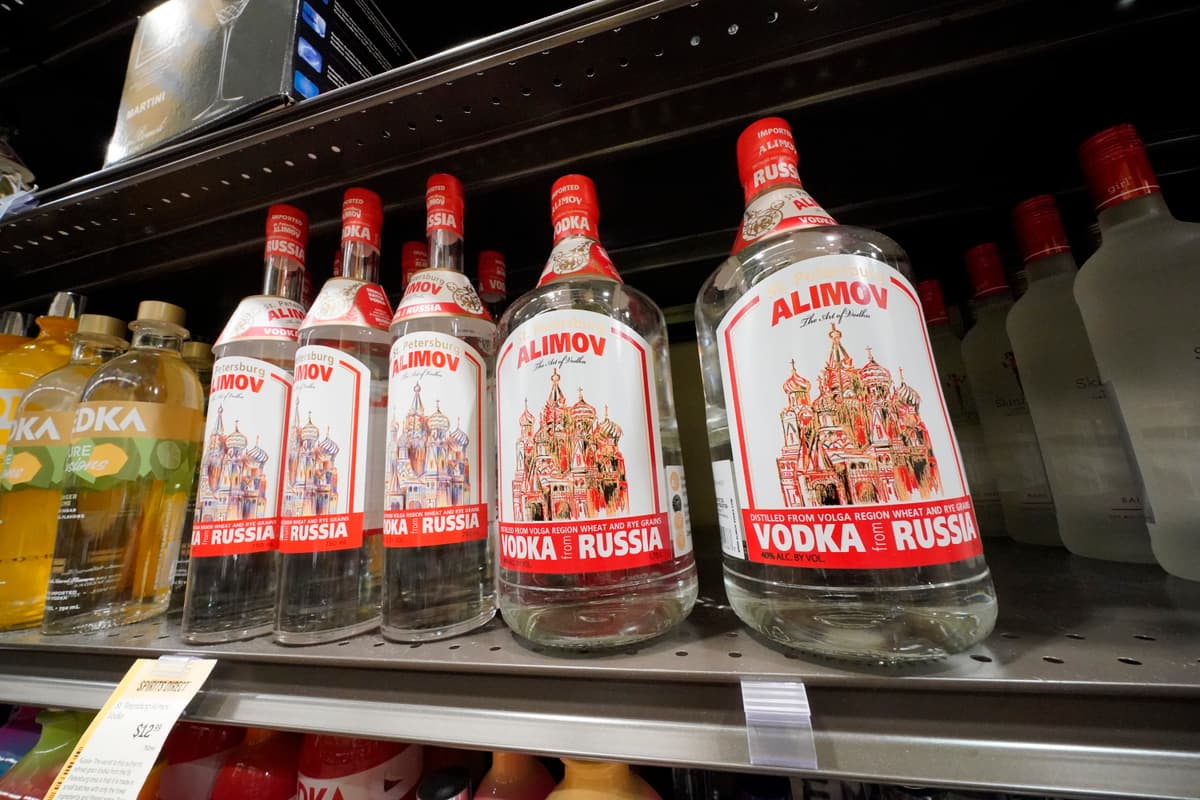Ukraine, in an Unlikely Attack on an Iconic Cultural Mainstay, Is Sending Drones Into Russia To Blow Up Its Vodka Distilleries
The strategy inflicts a psychological blow to an industry revered by Russian men.

In a blow to Russia, Ukraine used the cover of night yesterday to blast four large vodka distilleries. Video clips posted online purported to show alcohol tanks burning fiercely in Tula and Tambov, two Russian regions about 300 miles from eastern Ukraine.
In the largest attack to date on Russia’s alcohol industry, drones flew from Ukraine and set off the pre-dawn blazes. In President Putin’s wartime economy, alcohol distilleries produce vodka for drinking and ethanol for the military machine.
Russia is the world’s largest consumer of vodka — about 21 shots per adult per month, according to the World Population Review. This is about 70 percent more than Ukraine’s per capita consumption and almost five times American consumption.
In a nation where vodka sales average 600 million liters a year, it is unclear whether yesterday’s pyrotechnics will seriously dent Russia’s vodka industry. However, it is a psychological blow to an industry revered by the average Russian man.
In 988, Prince Volodomyr the Great rejected Islam because of Islam’s prohibition of drinking alcohol. Instead, he Christianized Kievan Rus. He is quoted as saying: “Drinking is the joy of all Rus. We cannot exist without its pleasure.”
Vodka was for Tsarist Russia what oil is for modern Russia. In the mid-19th century, vodka taxes accounted for up to 40 percent of government revenue. By 1911, 89 percent of all alcohol sold in Russia was vodka.
In the opening days of Nazi Germany’s 1941 attack on the Soviet Union, the Luftwaffe sought out and severely damaged Moscow’s Kristall, the Soviet Union’s largest distillery. During World War II, Red Army soldiers advanced through Eastern Europe fueled in part by daily rations of two shots of vodka.
This week, it is unlikely that Ukraine’s attack on Russia’s iconic cultural product will galvanize Russians to rally around their President’s war on Ukraine. More likely, it will simply become the latest indignity that Russians have to put up with as they seek to avoid getting dragged into his war.
Two years ago, a national draft order prompted about 1 million Russian men to leave the country. To avoid a repeat this fall, Mr. Putin is burning through oil earnings to buy soldiers. First-time signing bonuses have soared to $25,000, the equivalent of two year’s annual salary for workers outside big cities. Enlistment bonuses rise as hair-raising news from the war front filters back home.
For Russian soldiers, last month was the bloodiest month of the 31-month war, American and British officials say. Daily Russian casualties averaged 1,200 killed or severely wounded a day. Ukraine’s August 6 invasion of a chunk of Russia’s Kursk region has not sparked a surge in enlistments.
“This unprecedented Ukrainian occupation of Russian territory” has exposed what the Atlantic Council’s Ukraine editor, Peter Dickinson, calls “the limitations of the Kremlin war machine.” Mr. Dickinson made that observation two weeks ago in an essay titled “Putin doesn’t have enough troops to defeat Ukraine and defend Russia.”
Mr. Dickinson contended that “while many continue to view the Russian military as an irresistible force with virtually limitless supplies of men and machines, it is now increasingly apparent that in reality, Putin’s attempt to conquer Ukraine has left his army dangerously overstretched and unable to defend Russia.”
In response to this shortage of warriors, Russia is training and equipping as many as 10,000 North Korean soldiers to fight against Ukraine. Ukrainian officials say these units will go to Russia’s Kursk region to join the fight to expel Ukrainian soldiers from Kursk, the first invasion of Russia by a foreign power since World War II. In simple English, this means that the Kremlin is paying foreign mercenaries to liberate Russian soil because Russians will not fight for it.

